
The top United Nations human rights official said today that “massive” violations against civilians had taken place in the Gaza Strip as she began a five-day tour of the region following Israel’s deadly assault on the occupied Palestinian territory earlier this month. Louise Arbour, the UN High Commissioner for Human Rights, toured the northern Gazan town of Beit Hanoun, where 19 Palestinians were killed and some 60 others injured earlier this month when the Israeli Defence Forces (IDF) shelled a residential area. Arbour told journalists that an independent, credible and thorough inquiry was needed to determine where responsibility lies for the deaths in Beit Hanoun. Read more about In Gaza Strip, UN human rights chief decries ‘massive’ violations against civilians
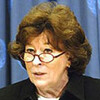
The protection of civilians during armed conflict and the entitlement of Palestinians and Israelis equally to enjoy all fundamental freedoms will top the agenda as United Nations High Commissioner for Human Rights Louise Arbour visits Israel and the Occupied Palestinian Territory from 19 to 24 November. This first visit as High Commissioner will give Ms. Arbour an opportunity to examine developments on the ground first-hand and discuss the situation with people affected by the violence, authorities, civil society and non-governmental organizations and UN partners. Read more about UN Human Rights Chief to visit Palestine
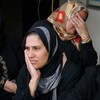
The third special session of the Human Rights Council concluded its work this afternoon after adopting a resolution in which it expressed its shock at the horror of Israeli killing of Palestinian civilians in Beit Hanoun and called for bringing the perpetrators thereof to justice; expressed its alarm at the gross and systematic violations of human rights of the Palestinian people in the Occupied Palestinian Territory by the occupying power, Israel, and called for urgent international action to put an immediate end to these violations; and decided to dispatch urgently a high-level fact-finding mission to be appointed by the President of the Council to travel to Beit Hanoun. Read more about Human Rights Council decides to urgently dispatch a high-level fact finding mission to Beit Hanoun

The Human Rights Council will hold its third special session on Wednesday, 15 November, to consider and take action on the gross human rights violations emanating from Israeli military incursions in the Occupied Palestinian Territory, including the recent one in Northern Gaza and the assault on Beit Hanoun. The special session is being convened following a request by the Ambassador of Bahrain on behalf of the Group of Arab States and the Ambassador of Pakistan on behalf of the Organization of the Islamic Conference. The first special session of the Human Rights Council was held in July on the situation in the occupied Palestinian territory. Read more about Human Rights Council to hold special session on Israeli attacks

“As Special Rapporteur on adequate housing, I condemn in the strongest possible terms the artillery shelling of Palestinian homes by the Israeli defence force in Beit Hanoun that killed 19 innocent civilians and injured 60, including women and children. The explanation by Israeli authorities that this wantonly criminal act was a mistake is unacceptable. […] I urgently call for an international independent investigation of the events and the deployment of international forces in the region. I also urge the international community, in view of their human rights and humanitarian law obligations, to reconsider the continuation of military cooperation with Israel.” Read more about UN expert urges Israel to stop destruction in Gaza, calls for military sanctions
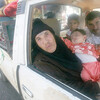
A detailed study presented by four UN experts to the UN Human Rights Council in Geneva on Wednesday concludes that serious violations of human rights and humanitarian law were committed by Israel during the recent conflict in Lebanon. In many instances, Israel failed to distinguish between military and civilian objectives; to fully apply the principle of proportionality; and to take all feasible precautions to minimize civilian injury and damage. The experts also concluded that Hezbollah violated humanitarian law in many instances by targeting civilian populations and by disregarding the principle of distinction. Read more about Major violations on both sides in Israel-Lebanon conflict, say UN experts
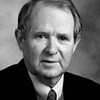
The Human Rights Council this afternoon discussed the follow-up of decisions and resolutions taken at its first session and the first and second special sessions and heard a follow-up report by the Special Rapporteur on the situation of human rights in the Palestinian territories occupied since 1967. John Dugard, Special Rapporteur on the situation of human rights in the Palestinian territories occupied since 1967, said on 6 July 2006, the Human Rights Council had adopted a resolution in which it decided to “dispatch an urgent fact-finding mission headed by the Special Rapporteur”. As there was no reply by the Israeli Government to requests for consent to a fact-finding mission to the Occupied Palestinian Territories, he had been unable to head that mission as required by the Council. Read more about Human rights council discusses situation in Occupied Palestinian Territories in context of follow-up of its decisions
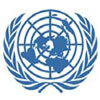
We, express our grave concern that the on-going armed conflict in Lebanon, Israel and Gaza poses serious human rights and humanitarian threats to the civilian population. We call on the parties to the conflict to fully respect the principle of proportionality in the conduct of hostilities and to refrain from indiscriminate attacks on civilians causing loss of life and mass displacement. We urge them to immediately agree on the cessation of hostilities in order to permit unrestricted and secure passage of all humanitarian assistance. Read more about UN Human Rights Experts: Protect the rights of civilians
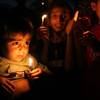
As the world’s attention is drawn to the widening conflict in Lebanon, it is extremely important that the deepening humanitarian crisis in the Gaza Strip is closely monitored and urgently addressed. The depth of this crisis cannot be understood without grasping the acute dependency and vulnerability of the population of Gaza. Amongst the most densely populated place in the world, Gaza has been occupied by Israel for almost 40 years. Its population of 1.4 million, most of whom are refugees, remains very heavily dependent on Israel, as well as the donor community. Read more about UN health rights expert: Independent enquiry into alleged war crime in Gaza








